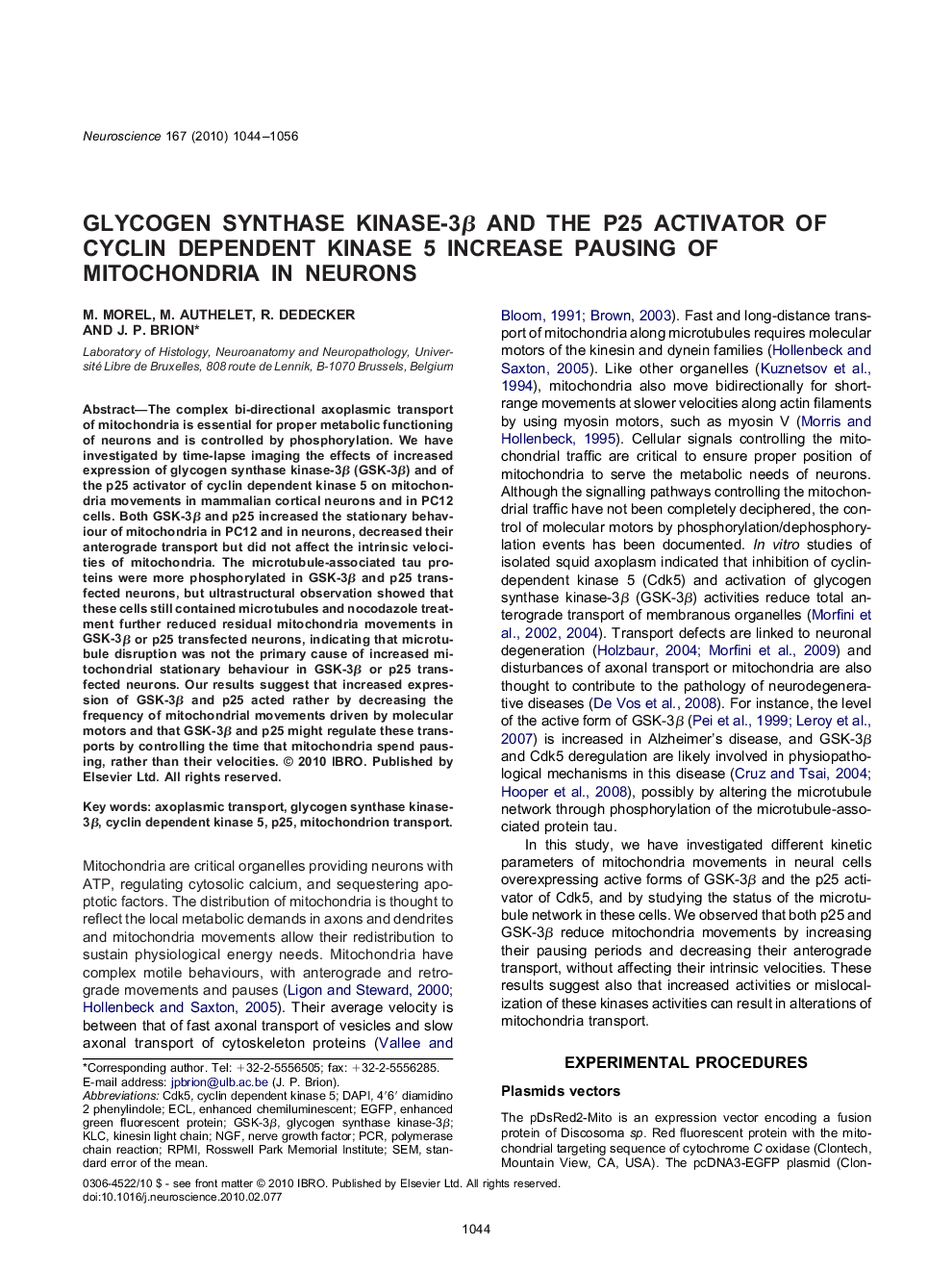| Article ID | Journal | Published Year | Pages | File Type |
|---|---|---|---|---|
| 6276860 | Neuroscience | 2010 | 13 Pages |
Abstract
The complex bi-directional axoplasmic transport of mitochondria is essential for proper metabolic functioning of neurons and is controlled by phosphorylation. We have investigated by time-lapse imaging the effects of increased expression of glycogen synthase kinase-3β (GSK-3β) and of the p25 activator of cyclin dependent kinase 5 on mitochondria movements in mammalian cortical neurons and in PC12 cells. Both GSK-3β and p25 increased the stationary behaviour of mitochondria in PC12 and in neurons, decreased their anterograde transport but did not affect the intrinsic velocities of mitochondria. The microtubule-associated tau proteins were more phosphorylated in GSK-3β and p25 transfected neurons, but ultrastructural observation showed that these cells still contained microtubules and nocodazole treatment further reduced residual mitochondria movements in GSK-3β or p25 transfected neurons, indicating that microtubule disruption was not the primary cause of increased mitochondrial stationary behaviour in GSK-3β or p25 transfected neurons. Our results suggest that increased expression of GSK-3β and p25 acted rather by decreasing the frequency of mitochondrial movements driven by molecular motors and that GSK-3β and p25 might regulate these transports by controlling the time that mitochondria spend pausing, rather than their velocities.
Keywords
Related Topics
Life Sciences
Neuroscience
Neuroscience (General)
Authors
M. Morel, M. Authelet, R. Dedecker, J.P. Brion,
